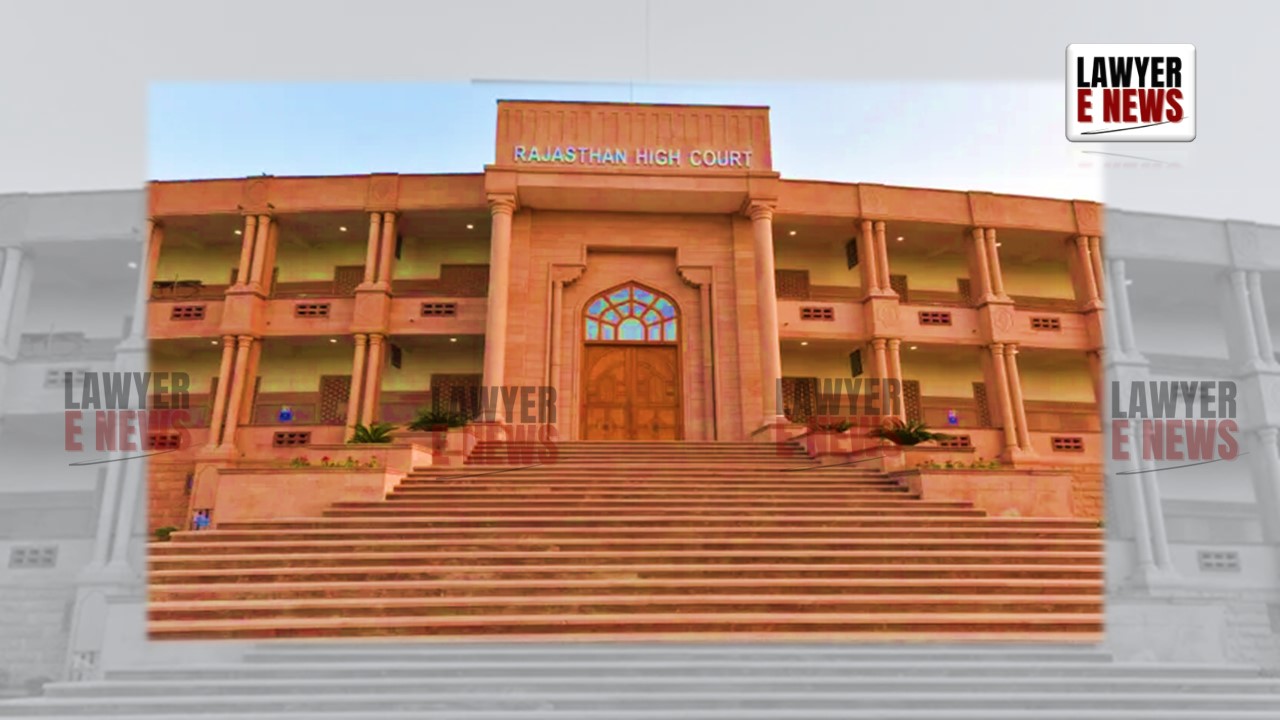-
by Admin
15 February 2026 5:35 AM



Rajasthan High Court granted bail to Azad Singh Bhagat, who had been languishing in pretrial custody for over eight years. The Court's decision hinged on the principle of the right to a speedy trial, recognizing that prolonged detention without a conclusion of the trial violated his fundamental rights under Article 21 of the Indian Constitution.
The High Court emphasized the inviolability of personal liberty, with Justice Farjand Ali citing the core constitutional right to freedom and dignity. Drawing from landmark cases, including Maneka Gandhi vs. Union of India (1978), the Court underscored that prolonged pretrial detention effectively strips an individual of their right to personal liberty, which is enshrined in Article 21.
Azad Singh Bhagat was arrested on September 12, 2016, following an FIR registered at Panchodi Police Station, Nagaur, under Sections 279 and 337 of the IPC. Additional charges were later added, including Sections 147, 148, 307, 323, 325, 427 of the IPC, and Section 3/25 of the Arms Act, after allegations surfaced that Bhagat had fired a gunshot at a police checkpoint, resulting in the death of a police officer.
Since his arrest, Bhagat had remained in jail, with only four out of 28 prosecution witnesses being examined in the trial so far. His first bail application was dismissed on April 5, 2024, leading to the filing of the present second bail application.
The Court expressed concern over the sluggish pace of the trial, noting that despite Bhagat's incarceration for more than eight years, the trial had made minimal progress. The Court highlighted that the right to a speedy trial is an integral part of fair administration of justice, and delays in concluding the trial severely prejudice the accused.
"Justice cannot be presumed to have been administered merely on passing of a judgment of conviction or acquittal. Rather, justice shall be deemed to have been completed when the trial is concluded within a reasonable period of time."
Citing various precedents, the Court delved into the concept of bail jurisprudence, noting that keeping an undertrial prisoner incarcerated for an indefinite period of time is punitive in nature and contrary to the principle of presumption of innocence until proven guilty. The Court referenced the Hussainara Khatoon vs. Home Secretary, Bihar (1979) judgment, which introduced the right to a speedy trial as an essential aspect of personal liberty.
The Court remarked that despite systemic delays and the gravity of the charges, the accused's right to liberty should not be indefinitely curtailed. The right to a speedy trial, guaranteed under Article 21, mandates that trials should conclude within a reasonable period, especially when the accused is in detention.
In granting bail, the Court reasoned that the trial was unlikely to conclude soon and that further detention of the accused would be unjust. The Court granted bail to Azad Singh Bhagat on the condition that he furnish a personal bond of ₹50,000 with two sureties of ₹25,000 each. The Court also emphasized that Bhagat must cooperate with the judicial process and appear before the trial court on all scheduled dates.
"Considering the fact that the petitioner has been in custody for more than eight years and the trial is far from concluding, it is deemed appropriate to grant bail to the petitioner. His right to a speedy trial must be protected."
The Rajasthan High Court's ruling in Azad Singh Bhagat vs. State of Rajasthan reaffirms the judiciary's commitment to safeguarding individual liberties, especially in cases of prolonged pretrial detention. The decision highlights the delicate balance between ensuring justice for the victim and protecting the rights of the accused during the judicial process.
Date of Decision: October 8, 2024.
Azad Singh Bhagat vs. State of Rajasthan
